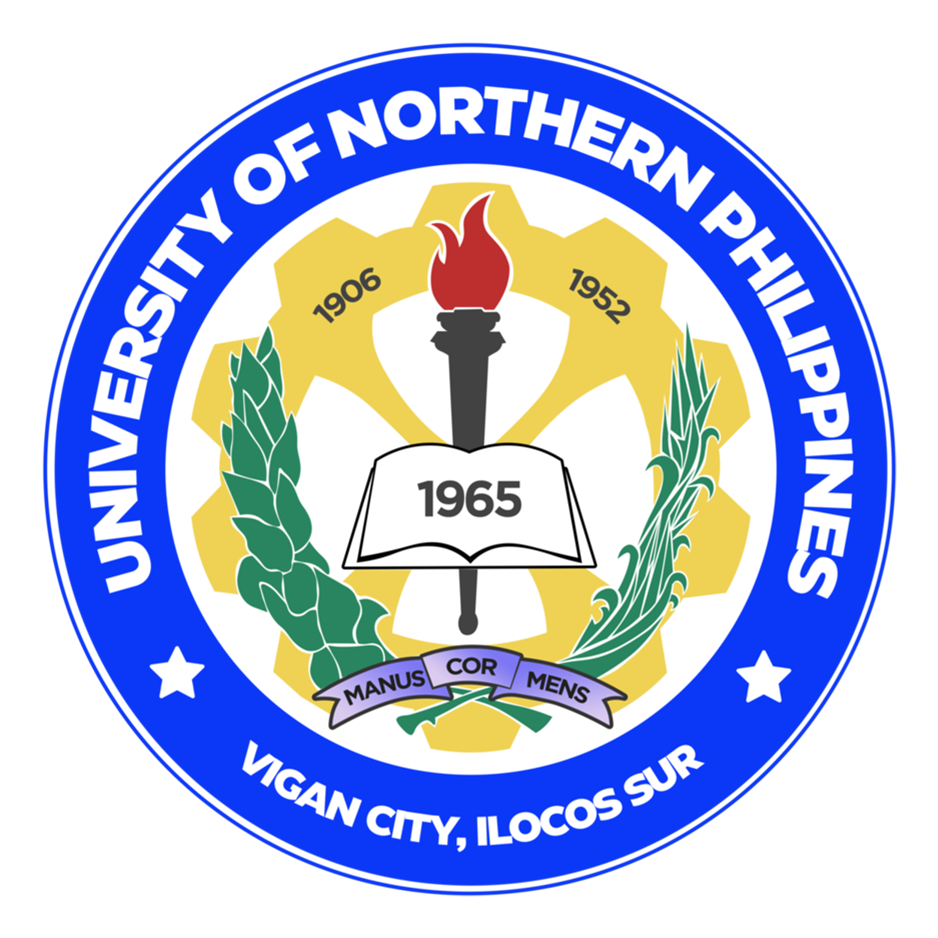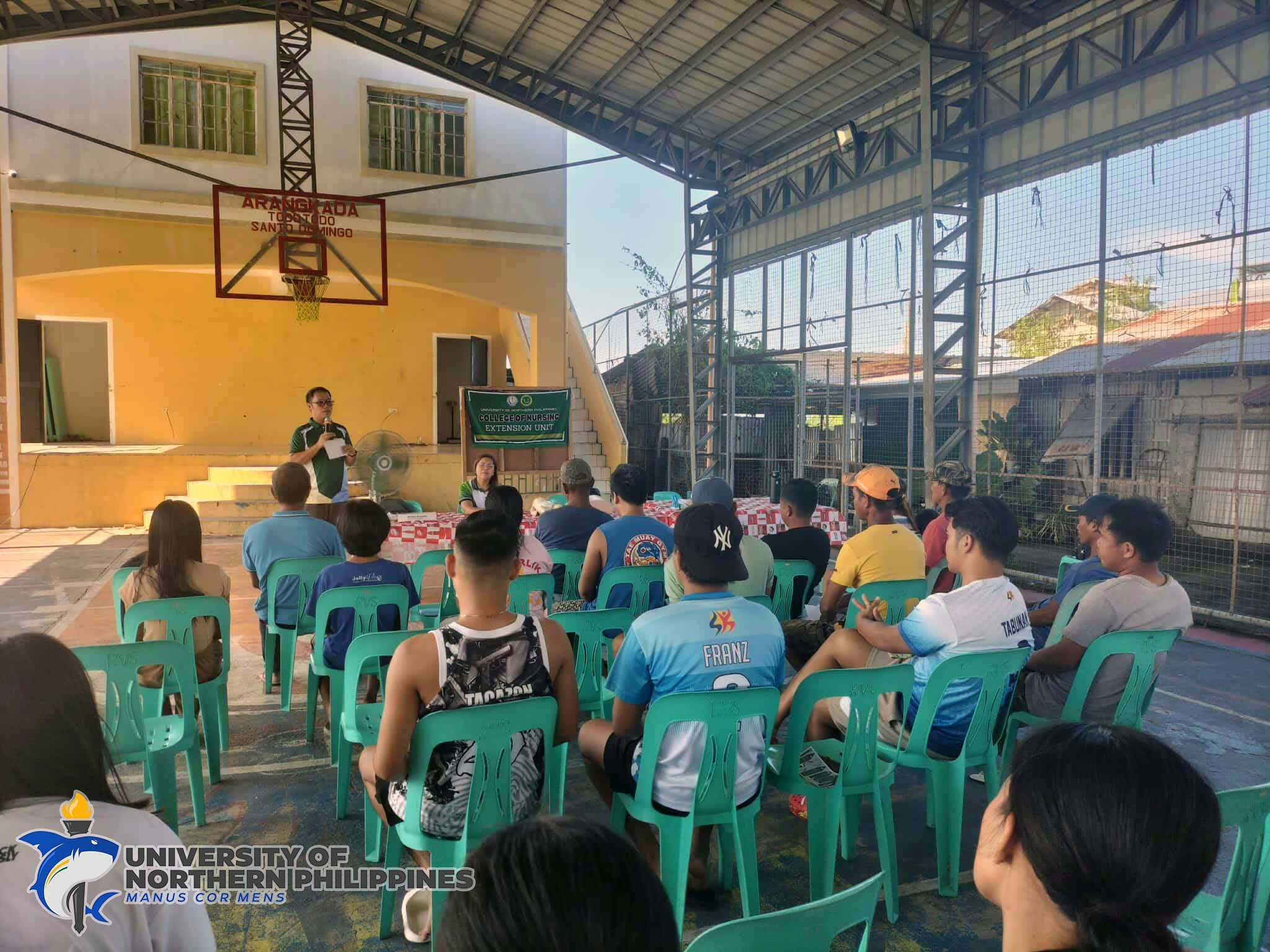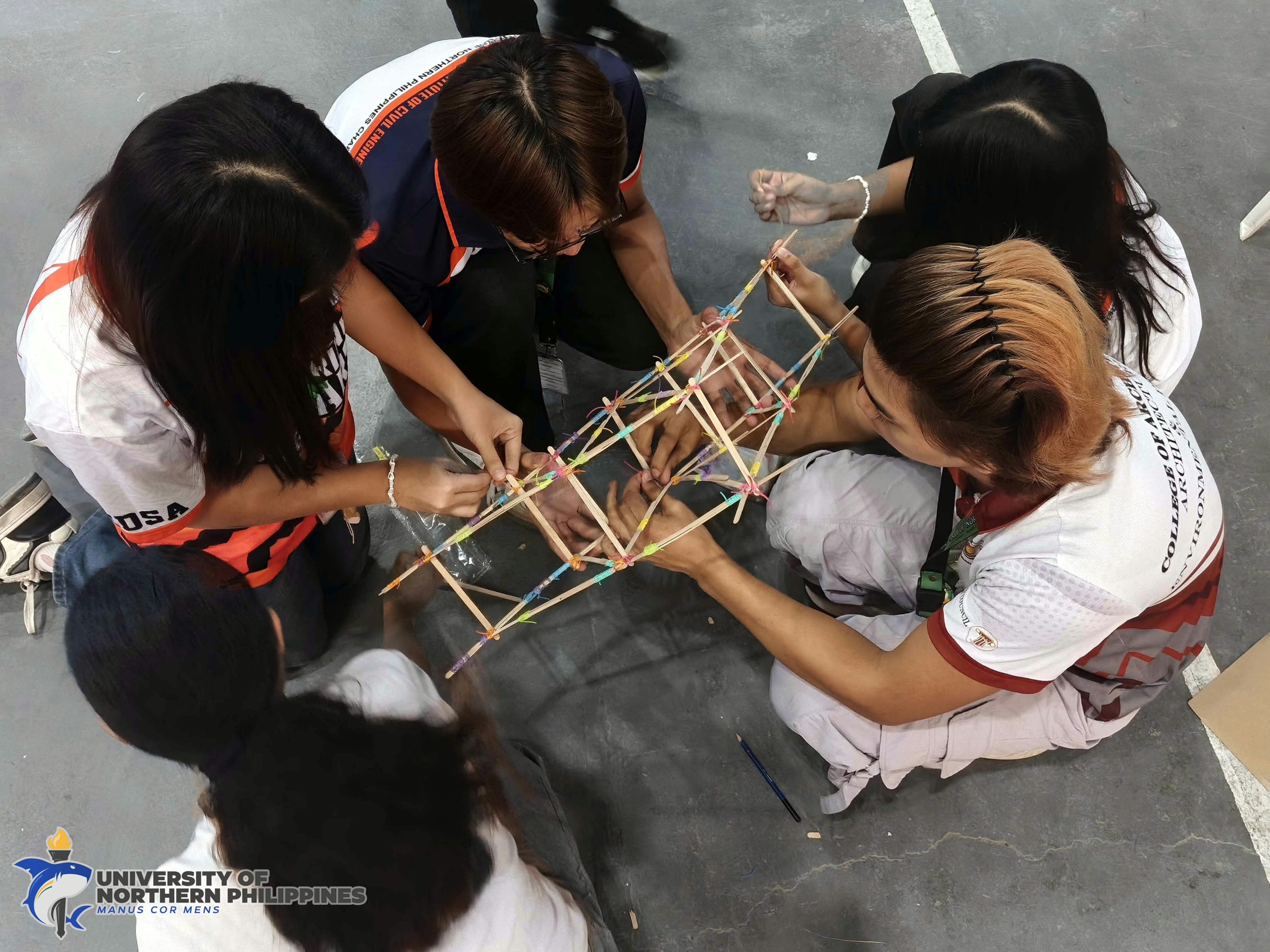The University of Northern Philippines (UNP) College of Nursing (CN) advanced its mission of building community preparedness and resilience through its flagship CARE Program (Community Assistance, Rehabilitation, and Empowerment) in Napo, Sto. Domingo, Ilocos Sur on October 11, 2025. The initiative titled “Community First Aid: Empowering Citizens to Save Lives,” equipped residents with essential knowledge and practical skills in emergency response and life-saving interventions.
The activity gathered barangay officials, Sangguniang Kabataan (SK) officers, and community members—including parents and youth—for an interactive learning and collaboration. Conducted under Project NAPOH (Nurturing and Promoting Optimal Health), the initiative aimed to strengthen public health awareness and community readiness in times of emergency. Participants underwent comprehensive basic life support and first aid training, gaining practical knowledge and vital skills to effectively respond to critical situations such as cardiac arrest, choking, poisoning, and injuries.
Distinguished faculty members from the College of Nursing led the series of lectures and demonstrations that highlighted the day’s training. Prof. Jermie Allen Alconis had an in-depth discussion on cardiopulmonary resuscitation (CPR), followed by Prof. Iann Patrick Fontano, who tackled choking emergencies and poisoning. Prof. Rex Tomas then concluded the training with a lecture on managing fractures, sprains, and burns. Each speaker stressed the importance of applying evidence-based practices while remaining sensitive to the community’s cultural values and traditional health practices, ensuring that modern interventions align with local realities.
The activity served as a concrete expression of the University’s Project Sappuyot, an institutional initiative dedicated to advancing culturally responsive community outreach. Through this program, the University ensures that its extension activities are grounded in respect for local culture, values, and practices—bridging academic expertise with the lived realities of partner communities.
Beyond its local relevance, the initiative also reinforces the University’s alignment with the United Nations Sustainable Development Goals (SDGs), particularly SDG 3: Good Health and Well-being and SDG 4: Quality Education. By integrating these global goals into community programs, the project promotes lifelong learning, holistic wellness, and inclusive development, empowering individuals to become active participants in shaping a healthier and more educated society.
By weaving local values into health education, the initiative empowered participants to take collective action for safety and well-being. It fostered unity, compassion, and preparedness—demonstrating how knowledge and culture can come together to save lives and build stronger, more resilient communities.
Article by Rizza Abinsay.




